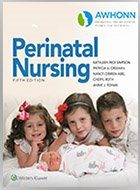- Researchers from Spain conducted an analysis of the genomes of 28,000 tumors from 66 types of cancer, leading to the identification of 568 cancer driver genes. The study, whose results provide the most complete snapshot of the compendium of cancer driver genes to date, was published in Nature Reviews Cancer.
- Australian and U.S. researchers found that taking aspirin daily, which is usually prescribed for cardiovascular and cerebrovascular event prevention in older adults, can increase the risk of locally advanced or metastatic cancer diagnosis. The study was published in the Journal of the National Cancer Institute.
- The American Chemical Society presents a new video on a novel type of immunotherapy that dramatically extends the survival of mice that have triple negative breast tumors. The research will be presented at the American Chemical Society (ACS) at the Fall 2020 Virtual Meeting & Expo. The video was presented on the American Chemical Society website and can be accessed on YouTube.
- Researchers from several academic institutions uncovered a mechanism of cancer metastasizing via lymph nodes. This research may lead to new targets for treatments that could inhibit the spread of cancer. This animal study on human melanoma cell spread was published in Nature.
New eBook : Perinatal Nursing
 The Library has added a new eBook to the collection, called Perinatal Nursing. The fifth edition of this book is a comprehensive resource that offers “expert guidelines and best practices for the full range of patient care issues, from cultural practices and pregnancy complications to newborn assessments and nutrition.” This is an evidence-based text for perinatal and labor and delivery nursing.
The Library has added a new eBook to the collection, called Perinatal Nursing. The fifth edition of this book is a comprehensive resource that offers “expert guidelines and best practices for the full range of patient care issues, from cultural practices and pregnancy complications to newborn assessments and nutrition.” This is an evidence-based text for perinatal and labor and delivery nursing.
Locating COVID Data
The COVID-19 pandemic has lead to a massive explosion of research, publications and accumulated data. Multiple organizations, institutions, and governments make efforts to collect, organize, and disseminate their COVID-19 related data for the needs of further research, patient management and to address information needs of the public. It can be overwhelming for researchers though, to determine where to find the raw data, what it means, and how you can use it in your own research and publications. Select international and U.S. sources of COVID-19 data and statistics are listed below.
Global Data:
- World Health Organization WHO Coronavirus Disease (COVID-19) Dashboard
- Visualized data at the regional and country level of cases and deaths
- Johns Hopkins University Coronavirus Resource Center
- Aggregated and analyzed data on tracking and testing for every country
US Data:
- CDC COVID Data Tracker
- Visualized data at the state and county level of total cases and deaths as well as trends
- Visualized data at the state level of cumulative testing
- Johns Hopkins University Coronavirus Resource Center
- Aggregated and analyzed data and reports on tracking and testing at the state and county level
- New York Times COVID-19 Data
- Downloadable raw data
- County, state, and national level data
- Live and historical data of confirmed and probable cases and deaths
New York State Data:
- NYSDOH COVID-19 Tracker
- Visualized data on cases, testing and fatality by county
- New York State Statewide COVID-19 Testing
- Downloadable raw data on testing and cases, both new and cumulative by county
New York City Data:
- NYC Health Coronavirus Data
- Downloadable raw data on COVID-19 testing, cases, and deaths
- Break data down by borough, poverty, age group, gender, race, and zip code
- NYC Health COVID-19 Data
- Visualized data on cases, deaths, hospitalizations, and testing
- Historical data